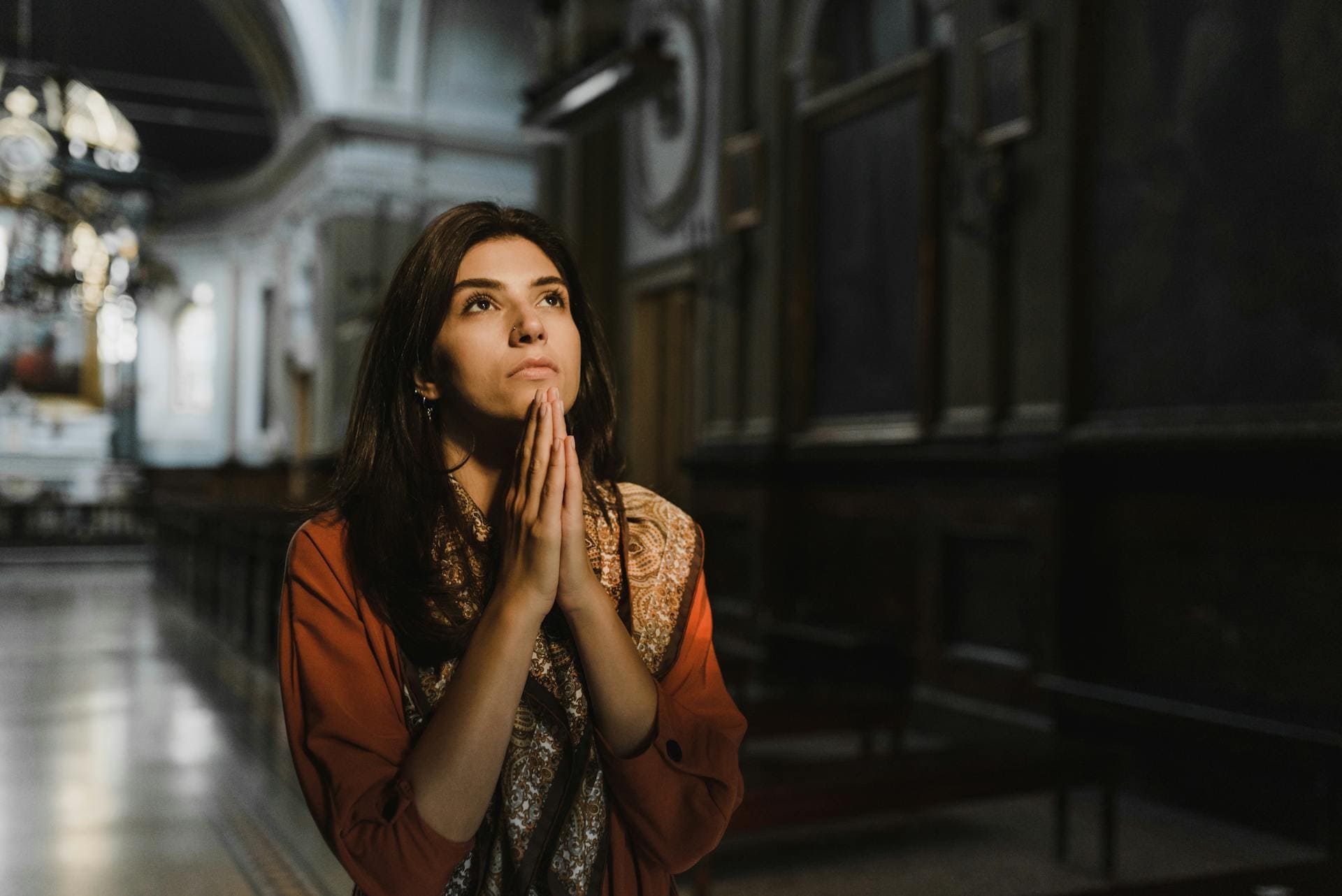As a Catholic, it is important to follow the rules and guidelines set forth by the Church.
These rules, known as canon law, help to guide Catholics in their daily lives and ensure that they are living in accordance with the teachings of the Church.
While some rules may seem strict or outdated, they are meant to promote a life of virtue and holiness.
From attending Mass every Sunday to confessing sins regularly, there are many rules that Catholics are expected to follow. However, it can be difficult to know exactly what is and is not allowed under Church law.
This guide aims to provide a comprehensive list of Catholic rules, covering everything from sacraments to social issues.
Whether you are a lifelong Catholic or a new convert, understanding the rules and guidelines of the Church is essential to living a fulfilling and faithful life.
While it may be challenging at times, following these rules can help to strengthen your relationship with God and deepen your understanding of the Catholic faith.
What Are Catholic Rules?
Catholic rules are a set of guidelines and principles that govern the behavior and conduct of Catholics.
These rules are based on the teachings of the Catholic Church and are designed to help Catholics lead a virtuous and moral life.
The rules cover a wide range of topics, including religious practices, moral conduct, and social behavior.
The Catholic Church has a long and rich history, and its rules have evolved over time. Some rules are based on the teachings of the Bible, while others are based on the interpretations and traditions of the Church.
The rules are enforced by the Church hierarchy, and Catholics are expected to follow them in order to be in good standing with the Church.
Some of the most important Catholic rules include attending Mass on Sundays and holy days of obligation, confessing sins regularly, receiving the sacraments, and following the Ten Commandments. Other rules cover topics such as marriage, family life, and social justice.
It is important to note that Catholic rules are not meant to be restrictive or punitive. Rather, they are intended to help Catholics grow in their faith and live a life that is pleasing to God.
By following these rules, Catholics can deepen their relationship with God and become better members of their communities.
The Importance of Catholic Rules
Catholicism is a religion that is based on a set of beliefs and practices that are guided by rules. These rules are intended to help Catholics live a life that is in line with the teachings of the Church.
The importance of these rules cannot be overstated, as they provide a framework for how Catholics should live their lives.
One of the key reasons why Catholic rules are so important is that they help Catholics to live a life that is morally upright.
The rules provide guidance on what is right and wrong, and they help to ensure that Catholics are living in accordance with the teachings of the Church.
By following these rules, Catholics can be assured that they are living a life that is pleasing to God.
Another reason why Catholic rules are important is that they help to create a sense of community among Catholics.
When Catholics follow the same rules, they are able to come together in a shared experience of faith. This creates a sense of unity and belonging, which is important for building a strong and supportive community.
Finally, Catholic rules are important because they help to preserve the traditions and teachings of the Church.
By following these rules, Catholics are able to maintain a connection to the rich history and tradition of the Church.
This helps to ensure that the teachings of the Church are passed down from generation to generation, and that the Church remains a vital and relevant force in the world today.
Catholic Rules on Worship
Catholic worship is centered around the Mass, which is considered the highest form of worship. The Mass is celebrated every Sunday and on holy days of obligation, and Catholics are required to attend.
It is also encouraged to attend Mass on weekdays, but it is not mandatory.
There are various types of Catholic worship, including the traditional (Tridentine) Latin Mass and the Liturgy of St. John Chrysostom. Catholics are free to attend any of these forms of worship as long as they are in line with the teachings of the Church.
During Mass, there are certain rules that Catholics are expected to follow.
For example, Catholics are required to dress modestly and respectfully, and to refrain from chewing gum or eating during Mass. It is also important to arrive on time and to participate fully in the Mass, including standing, sitting, and kneeling when appropriate.
Catholics are also encouraged to participate in other forms of worship, such as adoration of the Blessed Sacrament, the Liturgy of the Hours, and the Rosary.
These forms of worship can be done individually or in a group setting, and can be a powerful way to deepen one’s relationship with God.
Catholic Rules on Daily Life
Living a Catholic life means following a set of rules that guide your daily routine. These rules help Catholics to live a life that is pleasing to God and to grow in holiness. Here are some of the Catholic rules that apply to daily life:
- Attend Mass on Sundays and Holy Days of Obligation. This is a requirement for all Catholics who have reached the age of reason.
- Pray daily, including morning and evening prayers, as well as grace before meals. Catholics are also encouraged to pray the Rosary and other devotions.
- Fast and abstain from meat on Ash Wednesday and Good Friday. Catholics are also required to abstain from meat on all Fridays during Lent.
- Confess sins at least once a year and receive Holy Communion during the Easter season.
In addition to these rules, Catholics are also called to live a life of charity and service to others. This includes helping the poor and vulnerable, forgiving others, and avoiding gossip and other forms of uncharitable speech.
It is important to note that while these rules are important, they are not meant to be burdensome. Rather, they are a guide to help Catholics live a life of holiness and grow closer to God.
Catholic Rules on Morality and Ethics
Catholic morality is based on the teachings of the Catholic Church and is centered on the belief that every human being has inherent dignity and worth. It is a moral code that guides Catholics in making ethical decisions and living a life of virtue.
Here are some fundamental principles of Catholic morality:
- Conscience: Conscience is a judgment of reason by which the human person recognizes the moral quality of a concrete act. It is important for Catholics to follow their conscience in making moral decisions.
- Natural Law: Natural law is the moral law that is written in the human heart and is accessible to all people. It is based on the belief that God has created a moral order that can be discovered through reason.
- Virtue: Virtue is the habit of doing good and avoiding evil. It is the foundation of Catholic morality and is developed through prayer, practice, and the grace of God.
- Law: Catholic morality is guided by both divine and human laws. Divine law is revealed in Scripture and tradition, while human law is based on reason and is necessary for the common good.
- Freedom: Freedom is the ability to choose what is good and to act on that choice. Catholics believe that true freedom is found in following the moral law and living a virtuous life.
These principles guide Catholics in making ethical decisions and living a life of virtue. It is important for Catholics to understand and follow these principles in order to live a life that is pleasing to God and in accordance with His will.
Common Misconceptions about Catholic Rules
There are many misconceptions about the rules and regulations of the Catholic Church. Some of these misconceptions have been around for centuries, while others are more recent.
Here are some of the most common misconceptions:
- Catholic rules are too strict: Many people believe that the rules of the Catholic Church are too strict and that they limit personal freedom. However, the Church’s rules are meant to guide individuals in leading a moral and ethical life, and they are not intended to be oppressive.
- Catholic rules are outdated: Some people believe that the rules of the Catholic Church are outdated and no longer relevant in modern times. However, the Church’s teachings are based on timeless principles of morality and ethics, and they continue to be relevant today.
- Catholic rules are arbitrary: Some people believe that the rules of the Catholic Church are arbitrary and do not make sense. However, the Church’s rules are based on a deep understanding of human nature and are meant to promote the common good and the well-being of individuals.
It is important to remember that the rules of the Catholic Church are not meant to be oppressive or restrictive, but rather to guide individuals in leading a moral and ethical life.
By following these rules, individuals can develop a deeper relationship with God and live a more fulfilling life.
Complete List Of Catholic Rules
50 things you’re not allowed to do if you are Catholic:
- Denying the existence of God or rejecting the divinity of Jesus Christ.
- Participating in occult practices or witchcraft.
- Engaging in sexual activity outside of marriage.
- Using artificial birth control or seeking abortion.
- Engaging in homosexual acts.
- Committing adultery or engaging in extramarital affairs.
- Taking the Lord’s name in vain or using foul language.
- Gossiping or spreading rumors about others.
- Refusing to attend Mass on Sundays and Holy Days of Obligation.
- Failing to fast or abstain on prescribed days.
- Using illegal drugs or abusing alcohol.
- Committing murder or suicide.
- Lying or deceiving others.
- Stealing or cheating others.
- Failing to forgive others or holding grudges.
- Engaging in excessive pride or vanity.
- Refusing to help the poor or vulnerable.
- Participating in violent or aggressive behavior.
- Engaging in gambling or other addictive behaviors.
- Failing to respect one’s parents or elders.
- Discriminating against others based on race, gender, or other characteristics.
- Engaging in greed or avarice.
- Failing to show compassion or empathy for others.
- Ignoring the needs of the environment or engaging in pollution.
- Refusing to practice hospitality or generosity.
- Engaging in envy or jealousy.
- Refusing to practice humility or meekness.
- Engaging in pornography or other forms of sexual exploitation.
- Refusing to seek forgiveness or make amends for wrongdoing.
- Disrespecting the sanctity of life in any way.
- Engaging in idolatry or worshiping false gods.
- Refusing to honor the Sabbath or keep holy days.
- Engaging in gluttony or overindulgence.
- Failing to treat animals with respect and care.
- Engaging in materialism or consumerism.
- Refusing to practice chastity or self-control.
- Engaging in narcissism or self-centeredness.
- Failing to respect the dignity and autonomy of others.
- Engaging in blasphemy or sacrilege.
- Refusing to practice patience or forbearance.
- Engaging in prideful or self-righteous behavior.
- Failing to seek knowledge or engage in intellectual growth.
- Engaging in hatred or prejudice toward others.
- Refusing to practice gratitude or thankfulness.
- Engaging in sloth or laziness.
- Failing to practice the virtues of faith, hope, and charity.
- Engaging in cynicism or despair.
- Refusing to take responsibility for one’s actions or choices.
- Engaging in disobedience or rebellion against lawful authority.
- Failing to seek reconciliation with God and others.
Conclusion
As a Catholic, it’s important to understand the rules and guidelines set by the Church. While some may seem strict or outdated, they are in place to help us live a life of faith and virtue.
By following these rules, we can grow closer to God and live a life of purpose and meaning.
Remember that these rules are not meant to be a burden, but rather a guide to help us live a fulfilling life. It’s important to approach them with a spirit of humility and obedience, trusting that the Church has our best interests at heart.
While this list is comprehensive, it’s important to note that there may be additional rules and guidelines specific to your local parish or diocese.
It’s always a good idea to consult with your priest or spiritual advisor if you have any questions or concerns.
Ultimately, the goal of these rules is to help us become better versions of ourselves and to grow in our relationship with God.
By following them with a spirit of love and obedience, we can live a life of holiness and purpose.
FAQ
Catholic rules refer to the teachings and practices of the Catholic Church, which provide guidance on moral and ethical behavior, worship, sacraments, and other aspects of the faith. These rules are based on the Bible, Church tradition, and the teachings of the Magisterium, which is the Church’s teaching authority.
Catholic rules are important because they help Catholics to deepen their relationship with God, live a virtuous life, and participate in the community of believers. Following Catholic rules also helps to promote unity and consistency within the Church.
Catholic rules are primarily enforced by individual Catholics, who are expected to follow the teachings and practices of the Church. However, priests, bishops, and other Church leaders also play a role in providing guidance and pastoral care to Catholics who are struggling to follow the rules.
Catholic rules are generally the same for all Catholics around the world, but there may be variations in the way these rules are expressed and practiced in different cultures and regions.
Additionally, there may be variations in specific practices and customs depending on the particular diocese, parish, or religious order. However, the core teachings and beliefs of the Catholic Church are universal and apply to all Catholics.
If a Catholic breaks a Church rule, they are encouraged to seek forgiveness through the sacrament of Confession and make amends for their actions. Depending on the severity of the violation, they may also be subject to disciplinary action, such as being denied certain sacraments or facing excommunication.
However, the Church also teaches that forgiveness and redemption are always possible through sincere repentance and a commitment to living a virtuous life.
Catholics learn about Catholic rules through a variety of sources, including the Bible, Church tradition, the Catechism of the Catholic Church, and the teachings of the Magisterium. Many Catholics also learn about Catholic rules through their families, schools, and religious communities.
Catholic rules can evolve over time as the Church responds to new challenges and cultural changes. However, any changes to Catholic rules must be in line with the teachings of the Bible and Church tradition, and must be approved by the Magisterium.
Catholics are expected to follow Catholic rules, but they are also encouraged to follow their conscience, which is the inner voice that helps them to discern right from wrong. If a Catholic’s conscience is in conflict with a Church rule, they are encouraged to seek guidance from a priest or spiritual director.
Catholic rules include teachings on social justice and the common good, and Catholics are called to advocate for the dignity and well-being of all people, especially the poor and vulnerable. Catholic social teaching emphasizes the importance of compassion, solidarity, and responsible stewardship of the earth.
Prayer is an essential part of Catholic life and is encouraged as a way to deepen one’s relationship with God and seek guidance in following Catholic rules. Catholics are encouraged to pray daily, attend Mass, participate in the sacraments, and engage in devotional practices, such as the rosary or Eucharistic adoration.
Catholic rules can be classified into different categories, such as moral rules, liturgical rules, sacramental rules, and disciplinary rules. Each category includes rules that guide Catholics in different aspects of their faith and practice.
Catholic rules are based not only on the Bible but also on the tradition of the Church, which includes the teachings of the early Church Fathers, the writings of saints and theologians, and the practices of the faithful over the centuries. Catholic tradition helps to provide continuity and stability to the faith and serves as a source of inspiration and guidance for Catholics.
While Catholic rules are meant to be followed by all Catholics, there can be differences in how Catholics interpret and apply these rules. For example, Catholics may have different opinions on the use of artificial contraception or the morality of certain social issues.
However, any differences in interpretation must be consistent with Church teaching and should not lead to a rejection of fundamental Catholic beliefs.
Catholic rules are intended to guide Catholics in living a virtuous and fulfilling life, but they also recognize the importance of personal freedom and responsibility. Catholics are called to use their freedom to make choices that are consistent with Catholic teaching and that promote the common good.
While Catholic rules are intended primarily for Catholics, non-Catholics are welcome to learn about Catholic teaching and practice and may choose to follow certain Catholic rules, such as those related to social justice or care for the environment. However, some Catholic rules, such as the reception of the sacraments, are reserved for Catholics only.







